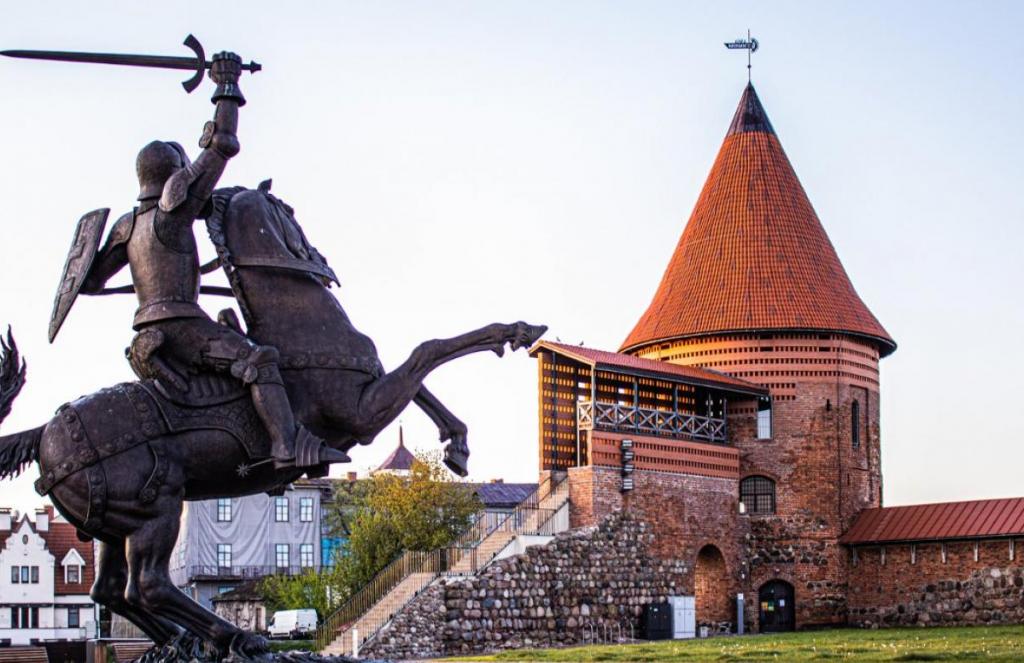Thessaloniki gets ready for its metro launch in November
The underground rapid transit lines have been under construction for almost two decades due to various project delays
 TheMayor.EU logo
TheMayor.EU logo 
The Kanaus Castle in Lithuania carries a heritage label because it was a Teutonic castle, a location involved in the region's Christianisation , Source: European Comission
Two projects in Italy and one in The Netherlands won a tender that aims to amplify events happening at the European Heritage Days
On 6 April, the European Commission and the Council of Europe announced the winners of the Call for Applications for the Support of European Heritage Label projects. The initiative was aimed at promoting small-scale projects on the local level that help strengthen the vision of Europe’s shared heritage claim.
Thus, the applications were limited to sites carrying the European Heritage Label, reserved for places that have played a significant role in the history of the continent or highlight a significant European perspective. Sites carrying the label participate in the European Heritage Days, which account for more than 70,000 events in 50 different countries and draw a combined crowd of 30 million people.
The projects that made it through the selection process will be financed with a grant of 14,500 euros. Furthermore, the Commission has said it will focus on projects which foster digital transformation, sustainable cultural tourism or promote capacity building of the sites.
The winners include Fondazione Trentina Alcide De Gasperi in Italy for its project ‘Visions of Europe. Following in the footsteps of the European Union's founding fathers and mothers’. The project has strong ties with the foundation’s Garden of Europe.
The garden itself is a collection of landscaping features that emulate the gardens at the Adenauer Haus and the Maisons Monnet and Schuman - places where the owners lived, worked to build Europe and sought moments of quiet.
Another Heritage Label site is the Stichting Herinneringscentrum Kamp Westerbork in The Netherlands and their project is called ‘Camp Westerbork Remembered’ (De Herinnering aan kamp Westerbork). The Westerbork Camp was built in 1939, during the Nazi occupation of the Netherlands. It was known as the ‘Gateway to Hell’ and it served as a transit camp for Dutch Jews, Sinti and Roma, who were transported to Auschwitz and Sobibor.
The third winning project is the Ostia Antica Archeological Park in Italy. The project is called ‘Public Archaeology in Ostia Antica', as the park features an open-air excavation site with many well preserved Roman structures.

The underground rapid transit lines have been under construction for almost two decades due to various project delays

Now you can get your wine in Talence by paying directly in Bitcoin

That’s because the state has to spend money on updating the railway infrastructure rather than subsidizing the cost of the popular pass

Rethinking renewable energy sources for the urban landscape

The examples, compiled by Beyond Fossil Fuels, can inform and inspire communities and entrepreneurs that still feel trepidation at the prospect of energy transition

Now you can get your wine in Talence by paying directly in Bitcoin

The 10th European Conference on Sustainable Cities and Towns (ESCT) sets the stage for stronger cooperation between the EU, national and local level to fast track Europe's transition to climate neutrality.

At least, that’s the promise made by the mayor of Paris, Anne Hidalgo

The underground rapid transit lines have been under construction for almost two decades due to various project delays

At least, that’s the promise made by the mayor of Paris, Anne Hidalgo

Hostal de Pinós is located in the geographical centre of the autonomous region

Despite its church-y name, the district has long been known as the hangout spot for the artsy crowds

Urban dwellers across the EU are having a say in making their surroundings friendlier to people and the environment.

Forests in the EU can help green the European construction industry and bolster a continent-wide push for architectural improvements.

Apply by 10 November and do your part for the transformation of European public spaces

An interview with the Mayor of a Polish city that seeks to reinvent itself

An interview with the newly elected ICLEI President and Mayor of Malmö

A conversation with the Mayor of Lisbon about the spirit and dimensions of innovation present in the Portuguese capital














